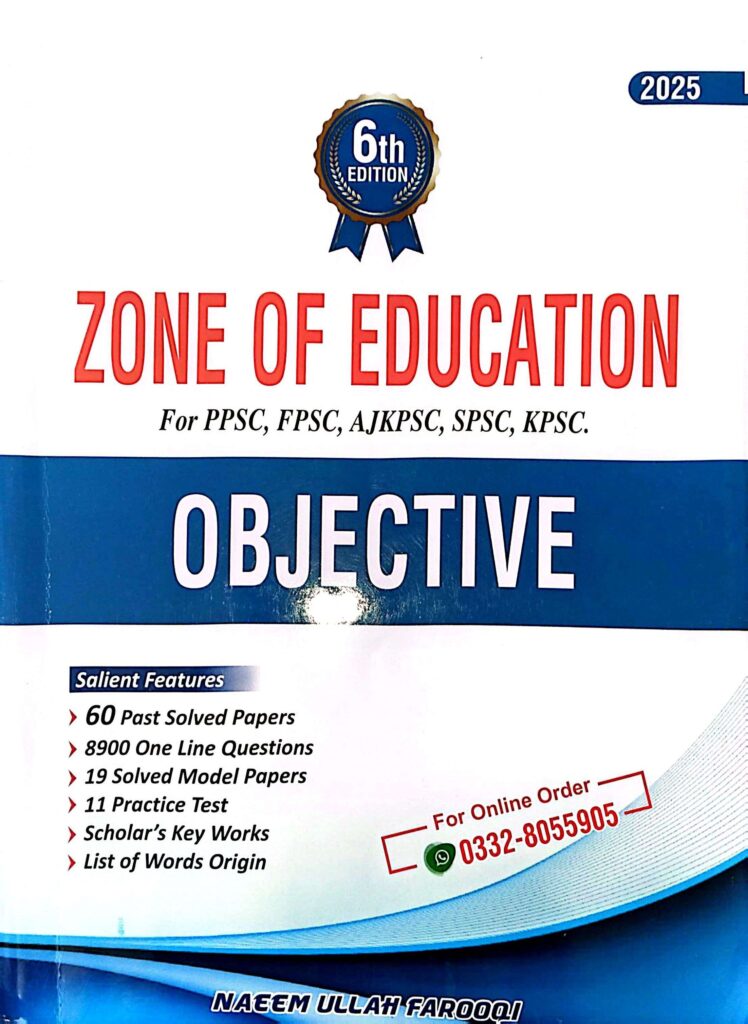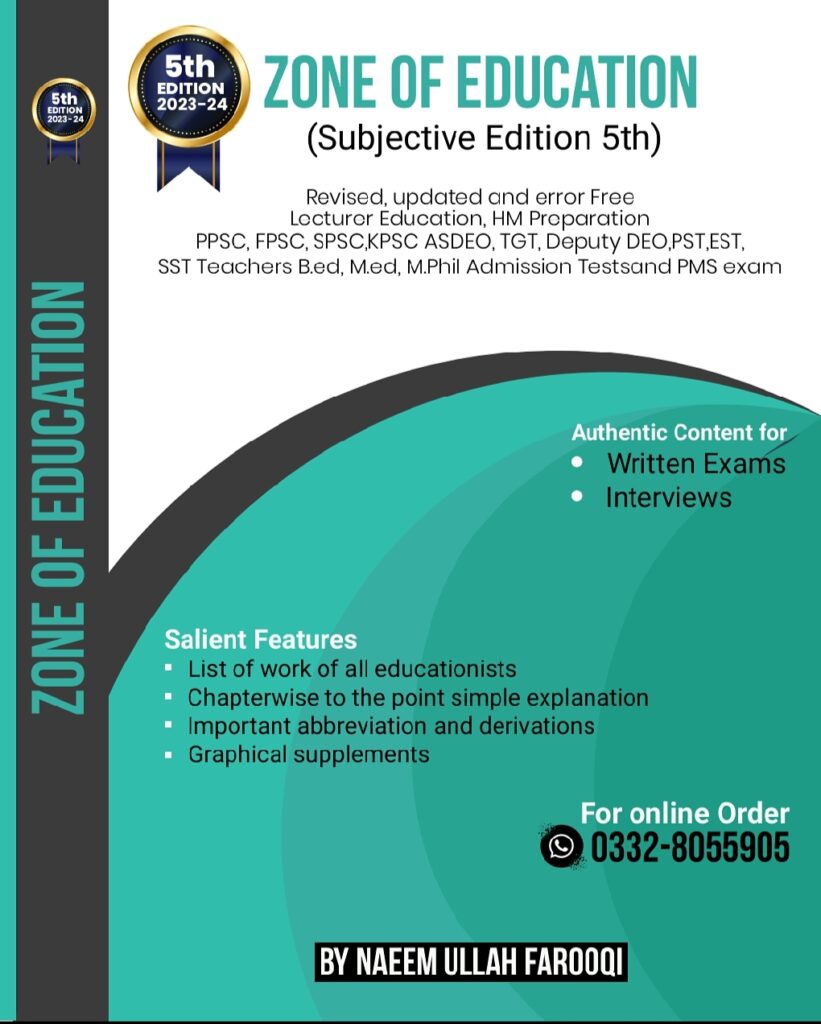MCQS FROM PAST PAPERS
. Education is derived from Latin word:
a) Educate Evolution b) Educere
c) Evolution d) None
Educere means:
a) To draw out b) To guide
c) To point out d) None
“Education is the creation of a sound mind in a sound body” is the saying of:
a) Plato b) Comenius
c) Aristotle d) None
Education according to John Dewey is:
a) Preparation for life
b) Getting knowledge
c) Learning to do by doing
d) None
Which of the following is not the characteristic of education:
a) Life-long activity
b) Factual absorption
c) Formal and informal
d) None
The basic source of educational objectives
a) Human experience b) Schools
c) Educational psychology d) None
According to crow and crow, the purpose of formal education is to:
a) Make students intelligent
b) Make students active and constructive members of society
c) Both d) None
The best definition of education is
a) Preparation for life
b) Getting knowledge
c) Growth resulting from experiences
d) None
Determining the aim of education is the responsibility of:
a) Parents b) Society
c) Students d) None
The real goal of education should be:
a) Securing a certificate
b) Acquiring skills habits and knowledge
c) Training d) None
Education planned with a particular end in view is:
a) Formal education
b) Informal education
c) Both (a) & (b) d) None
Non-formal education has:
a) Flexible rules of entry & exit
b) Rigid rules of entry & exit
c) No rules of
d) None
Formal education has:
a) Flexible rules of entry & exit
b) Rigid rules of entry & exit
c) No rules of entry & exit
Informal education has:
a) Flexible rules of entry & exit
b) Rigid rules of entry & exit
c) No rules of entry & exit
d) None
The education confined to educational institution is:
a) Informal education b) Non-formal educ
c) Formal education d) None
Education is imparted mostly by correspondence in:
a) Informal education b) Non-formal
c) Formal education d) None
Education is not pre planned in:
a) Informal education
b) Non-formal education
c) Formal education
d) None
Informal education is:
a) Just schooling b) Time bound
c) Life-long d) None
What is the most important element of non-formal education?
a) Teacher Media b) Student
c) Media d) None
Which one is not the source of formal education:
a) Museum b) Home
c) Library d) None
Informal education is:
a) Planned b) Incidental
c) Systematic d) None
Formal education has well defined:
a) Curriculum b) System
c) Method d) None
Which is not the element of educational process:
a) Aims b) Motivation
c) Evaluation d) None
The sum of curricular and co-curricular activities is:
a) Aim b) Curriculum
c) Pedagogy d) None
Pedagogy is concerned with:
a) Aims b) Content
c) Teaching method d) None
To determine the value or worth of any thing is:
a) Aim b) Method
c) Evaluation d) None
In educational process which one is evaluated:
a) Aim b) Content
c) Method d) All of these
The literal meaning of philosophy is:
a) Love of knowledge
b) Love of truth
c) Love of wisdom
d) None
Axiology in philosophy deals with:
a) Knowledge b) Reality
c) Values d) None
Epistemology deals with:
a) Knowledge b) Reality
c) Values d) None
Ontology deals with:
a) Knowledge b) Reality
c) Values d) None
Ontology is also called as:
a) Metaphysics b) Axiology
c) Epistemology d) None
Metaphysics deals with the nature of:
a) Knowledge b) Reality
c) Universe d) None
Eclecticism means borrowing beliefs from:
a) One philosophy
b) Two philosophies
C) Different philosophies
d) None
JOIN ZONE OF EDUCATIONPK!
Discover the most comprehensive and reliable pedagogy resources in Pakistan, curated for competitive exam success. Our content covers all competitive exam MCQs, including PPSC, FPSC, AJKPSC, SPSC, and more. Designed to empower learners with top-notch material and insights, trust us for your preparation journey!


